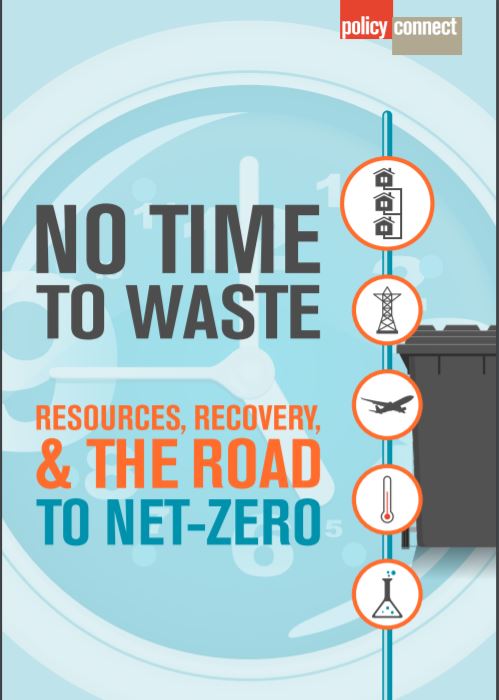Energy from Waste is “best available” option
02 November 2020

A report into the role of Energy from Waste (EfW) published by a cross-party group of MPs has called on the UK to adopt a more ‘Scandinavian’ approach to tackle its national waste problem by linking energy and waste policy.
Produced by Policy Connect, the report notes that half of the waste produced in the UK is non-recyclable and that large amounts of this residual waste will be produced for years to come.
In considering the three options for managing residual waste - EfW, burying it in landfill or shipping it abroad - the report firmly concluded that EfW is the best available option.
In addition to more ambitious recycling targets and investment in innovative recycling technology, the report wants the UK to follow other European economies and “treat residual waste as a valuable resource to produce lower carbon heat and energy”. This is particularly important given the UK’s focus on becoming net-zero carbon by 2050 and the need to address the long-term impacts of COVID-19.
The authors make the case that “By sending the waste to EfW, it is pushed up the waste hierarchy, diverted away from environmentally damaging landfill, and can support the UK’s heat and power needs. At the same time, it helps to maintain a clean and hygienic waste service; something the public has come to expect; the need for which has been reinforced during the COVID crisis.”
To maximise the benefits of EfW the report has asked Government to develop measures to improve the uptake of heat produced by such plants and further decarbonise them.
Other findings included:
- No evidence that EfW inhibits recycling rates
- The UK should stop sending its waste abroad and use it instead to recover heat and energy at home
- EfW was the lowest carbon option for managing residual waste, avoiding 200kg of CO2 for every tonne of waste diverted away from landfill
- Limited evidence that Advanced Thermal Treatments (including gasification) is currently proven on a large, sustainable scale
- European countries including the Netherlands and Sweden have introduced export taxes on waste being sent to their EfWs
- Even if the UK achieves a 65% recycling rate that still leaves a baseline of 35% residual waste – actual volumes of this residual waste are likely to continue growing as population increases
- Based on data from the National Air Emissions Inventory, bonfire night contributed 10 more dioxin emissions in 2016 than all EfW plants throughout the year
The report suggests that in addition to helping meet carbon targets and supporting economic growth, first and foremost EfW provides a “basic but fundamental service in maintaining hygiene. Preventing waste build-up in the streets, reducing the spread of diseases, and the safe disposal of medical and hazardous waste would often be overlooked, but in a post-COVID-19 world will likely become more important and of greater public interest than ever”.
arc21 is proposing to develop Northern Ireland’s first dedicated EfW plant to manage non-recyclable council waste. The new infrastructure will also include the island’s largest recycling facility. There are currently around 500 EfW plants across Europe.
Published during the summer ‘No Time to Waste: Resources, recovery & the road to net-zero’ was the culmination of a six-month inquiry into the future role of EfW in the UK carried out by Policy Connect’s Sustainability team.